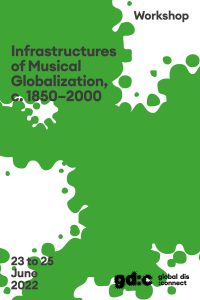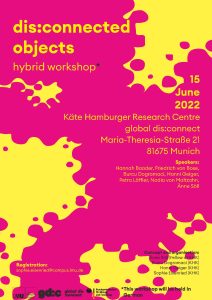In
Past events 2022
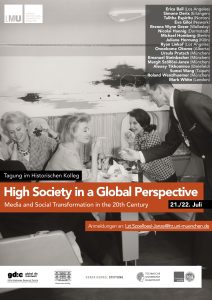
On 21 and 22 July 2022, the international conference "High Society in a Global Perspective. Media and Social Transformation in the 20th Century" will take place at the
Historisches Kolleg in Munich.
At the beginning of the 20th century and thus earlier than previously assumed, the so called
High Society developed as a new social formation in North America. It was largely constituted by mass media visibility and thus offered an (additional) alternative to social advancement through economic success, family relationships or status. The
High Society was actually much more open and dynamic than the upper class of the Gilded Age. At the same time, however, media visibility created an ambivalent interplay of empowerment and disempowerment that affected social structural categories such as gender, age, body, and family and created new social asymmetries.
The conference will focus on the question of the extent to which comparable media logics and social formation processes developed simultaneously or with a time lag in other countries and regions, as in the case of the
High Society in North America. In addition, did a global networking of people attributed to the
High Society, of media professionals, and of various media sub-publics take place during this period?
The event has been organized by
Nicolai Hannig (Darmstadt),
Juliane Hornung (Cologne) and
Margit Szöllösi-Janze (Munich). The Käte Hamburger Research Centre
global dis:connect acts as co-host. The conference will take place at the
Historisches Kolleg, Kaulbachstrasse 15, in Munich.
You can find the full programme
HERE. For more information, please contact
Julia Hornung.
Continue Reading
![]() On 21 and 22 November 2022, global dis:connect will host the international workshop Oceans Disconnect. The workshop is organised by David Armitage (Harvard), Sujit Sivasundaram (Cambridge) and Roland Wenzlhuemer (Munich). The Call for Papers is now open and can be found in our calls section or directly here. Submission deadline is 15 May 2022.
On 21 and 22 November 2022, global dis:connect will host the international workshop Oceans Disconnect. The workshop is organised by David Armitage (Harvard), Sujit Sivasundaram (Cambridge) and Roland Wenzlhuemer (Munich). The Call for Papers is now open and can be found in our calls section or directly here. Submission deadline is 15 May 2022.





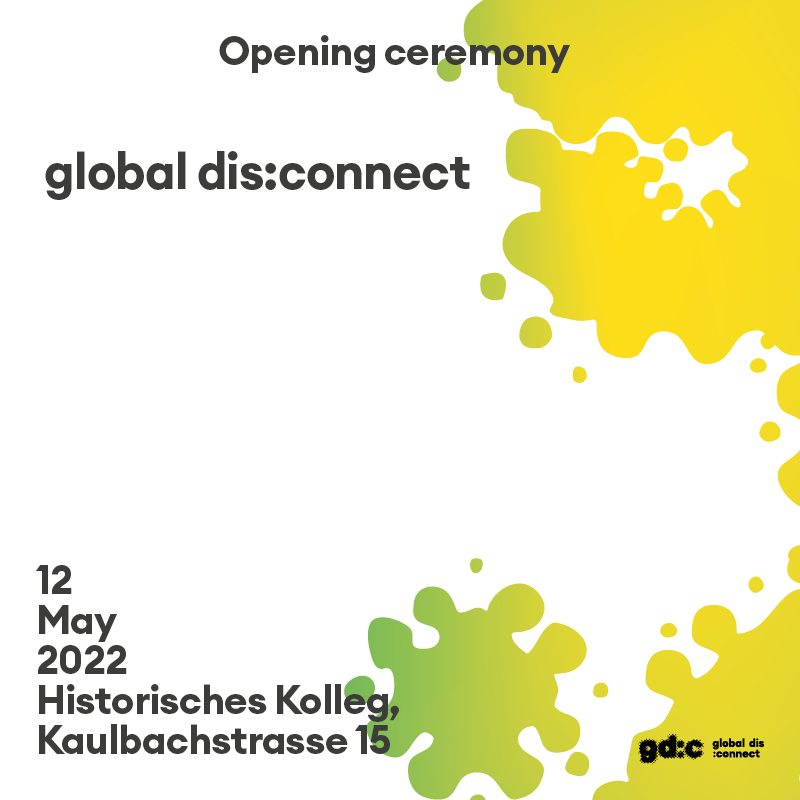 Please note that registration is now open for global dis:connect's opening ceremony on 12 May 2022. The event will take place at the Historisches Kolleg in Kaulbachstrasse. The occasion will be marked by a keynote lecture from Heidelberg art historian Monica Juneja who will speak on “Awkward, unstable, creative: Dis:connection as world-making”. The lecture will be followed by an evening reception. All are welcome, but as seating is limited you are kindly asked to pre-register below. Please note that you can leave the password field blank if you do not want to create an account.
Please note that registration is now open for global dis:connect's opening ceremony on 12 May 2022. The event will take place at the Historisches Kolleg in Kaulbachstrasse. The occasion will be marked by a keynote lecture from Heidelberg art historian Monica Juneja who will speak on “Awkward, unstable, creative: Dis:connection as world-making”. The lecture will be followed by an evening reception. All are welcome, but as seating is limited you are kindly asked to pre-register below. Please note that you can leave the password field blank if you do not want to create an account.
 A warm welcome to our new fellow Ayşe Güngör who just joined the Kolleg for then next twelve months.
A warm welcome to our new fellow Ayşe Güngör who just joined the Kolleg for then next twelve months. A warm welcome to our new fellow Enis Maci who just joined the Kolleg for two fellow stints, one in winter/spring and one in summer 2022.
A warm welcome to our new fellow Enis Maci who just joined the Kolleg for two fellow stints, one in winter/spring and one in summer 2022.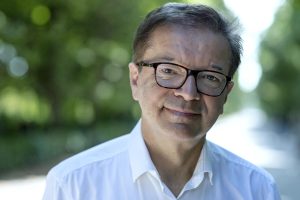
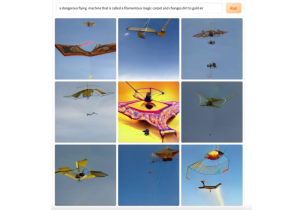 On 14 August 2022, the
On 14 August 2022, the On 21 and 22 July 2022, the international conference "High Society in a Global Perspective. Media and Social Transformation in the 20th Century" will take place at the
On 21 and 22 July 2022, the international conference "High Society in a Global Perspective. Media and Social Transformation in the 20th Century" will take place at the 